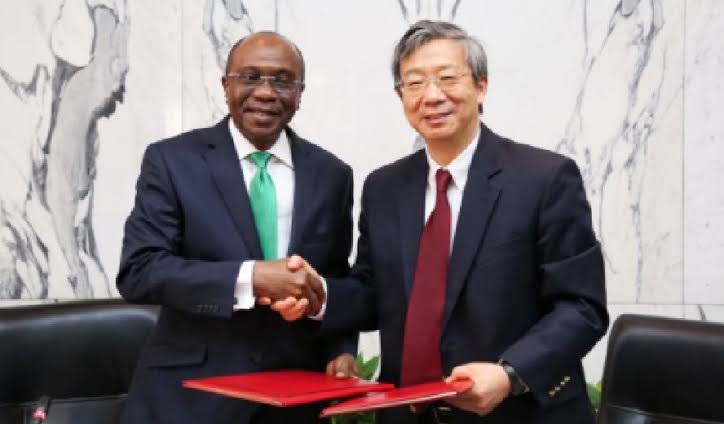The envoy reacted on the backdrop of allegations that the currency swap deal may have been stalled three years after it was launched.
The BCS agreement was to allow importers of goods from China to conclude their transactions in Yuan instead of the US Dollar and vice-versa. This was done to reduce the demand of the US Dollar and reduce the pressure of the naira.
He said, “The agreement is being implemented by the two central banks; the framework would be expanded. I believe it is already working and I’m working to have Chinese banks here in Nigeria and also for Nigerian banks to operate in China.”
The envoy commended Nigeria and 25 other African countries for supporting the restoration of China’s lawful seat at the United Nations during the 26th Session of the UN on October 25, 1971.
He quoted Chinese President Xi Jinping on October 25 as saying that the restoration “came as the result of joint efforts of all peace-loving countries that stood for justice in the world.”
He also applauded Nigeria for supporting the One China Policy over the issues concerning Taiwan, adding that the former Island of Formosa remains part of mainland China and should be reunited with it irrespective of the opposition from the United States and its allies.
He also expressed the desire for closer collaboration between the Chinese lawmakers and their Nigerian counterparts, adding that the eighth Ministerial Conference of the Forum on China-Africa Cooperation (FOCAC) will be held in Senegal in late November.
He emphasized that since its establishment over 21 years ago, FOCAC has intensified high-level interactions and political trust between China and Africa, delivering a leap in Sino-Africa relations.
The envoy stated, “FOCAC has now turned itself into a pacesetter for cooperation with Africa and a fine example of mutually beneficial cooperation in the world.
“Africa and China have stepped up mutual support on issues involving each other’s core interests and major concerns, work together for greater democracy in international relations, stay committed to multilateralism and align global governance reforms with the common interests of developing countries.”



